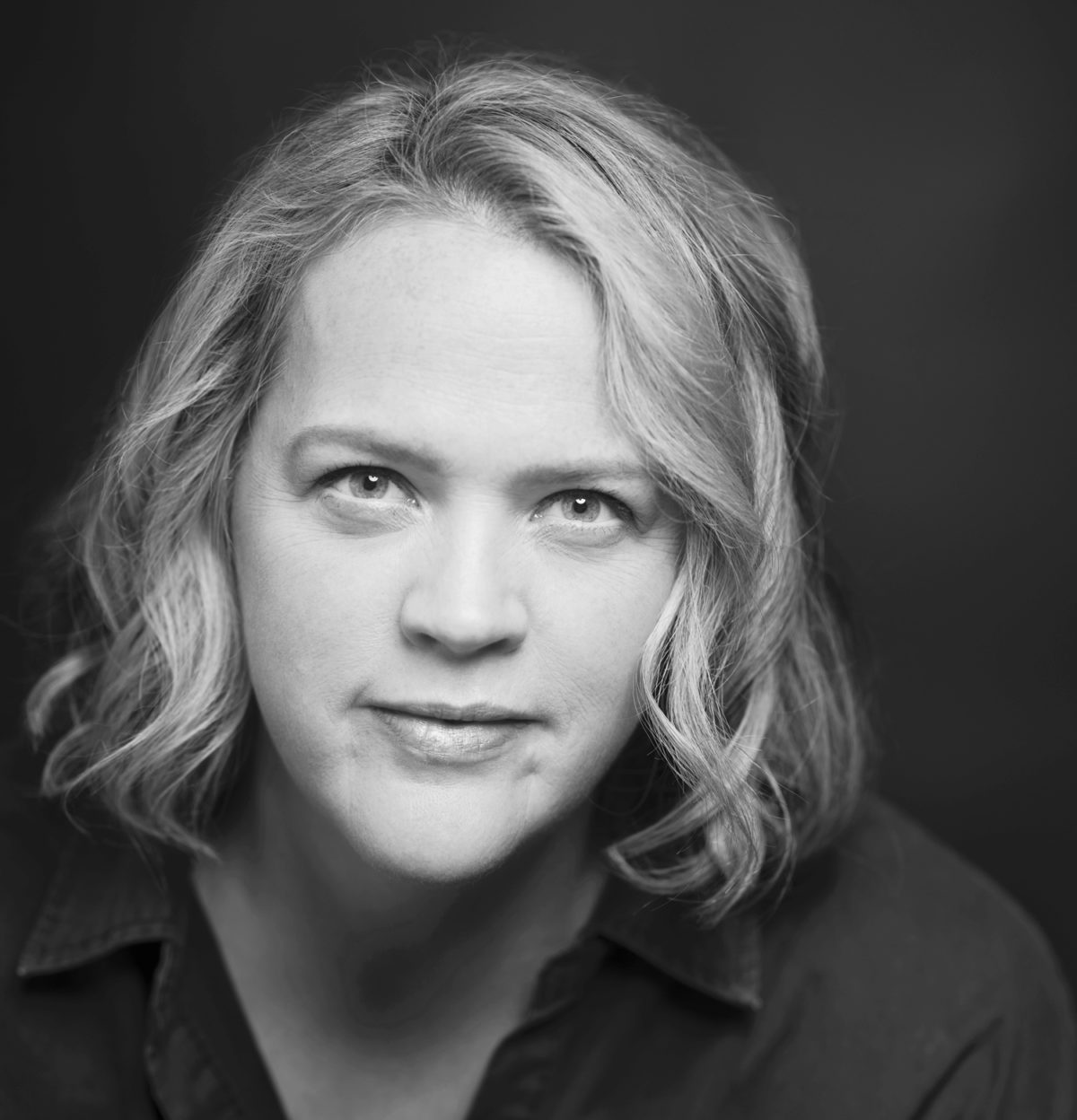Q&A with Erika Bolstad
Journalist Erika Bolstad writes about environmental issues, politics, and the effects of climate change (including natural disasters like Hurricane Katrina). For the past decade, she’s also been working on a book, Windfall: The Prairie Woman Who Lost Her Way and the Great Granddaughter Who Found Her, which arrives in bookstores on January 17th. Windfall is part memoir but it’s also a bit of a mystery: who was her great-grandmother, Anna, and why did she unaccountably disappear from her North Dakota homestead in 1907? It’s also an excellent primer on the oil industry and fracking and how both impact rural communities in North Dakota. At the heart of the book is a personal dilemma: is it OK to accept a windfall if the industry that produces it furthers climate change? Bolstad and her husband Chris Waldmann live in Sunnyside with their lab mix Mojie.
Can you explain for those who don’t know what owning “mineral rights” even means? It’s a strange concept for those of us who don’t live in oil states.
Erika: In most parts of the United States, people own the surface of the land and also the earth beneath the surface. But in many places, those two things can be separated—especially in oil patch states. So even though my family no longer owns the land, they still own the mineral rights. And of course, this can end up in all kinds of heartaches. People who own the land don’t always own the mineral rights beneath them and don’t have a lot of recourse or decision-making power about who drills where.
At the heart of the book is your ambivalence about inheriting these rights and the money that comes from them. Can you explain that ambivalence?
Erika: On the one hand, Americans are conditioned to embrace windfalls, to embrace sudden riches. We all believe deep down that we could get rich. That wealth is almost our due in some ways—even if we fight against that impulse or don’t really believe it. It’s deep in our culture. My mother was super excited when these envelopes showed up.
She also went to college thanks to those checks from the oil company.
Erika: Yeah. So there’s a real legacy of this money having value in my family. I have a deep understanding of the value of these mineral rights to my family and to many other families just like mine all over North Dakota, Oklahoma, and Texas. I get it.
On the other hand, it was so clear from the very beginning that the toll of fracking, the toll of drilling, the toll of boom and bust economies, is really unacceptable. And you can look at the short term toll of it—whether it’s the increased toll on roads, air pollution, long-term ground water pollution, and salt spills that damage farmland. Or just building up infrastructure that’s unnecessary. There are short term effects and there are long term effects. The long term effect is the scariest, which is climate change. So I saw all of these things the way a journalist does. If not in a neutral way, in a way where I can see them all laid out on the table. And kind of weigh them and understand how some of them might be more harmful than others.
While doing research at the National Archives in D.C., you discover that Anna was committed to the North Dakota Hospital for the Insane in 1907, after the birth of her son (your grandfather). Later you conclude from her medical files that she most likely had postpartum depression. How did that make you feel? Relieved that we’ve come a long way in diagnosing postpartum depression?
Erika: I think that a lot of women even now struggle with the after-effects of giving birth—in a society that doesn’t have a lot of support for them after their children are born. What they call the fourth trimester. No-one in modern life is being institutionalized in the same way, which is good. But I do think that there are way too many parallels still for modern American women, post birth. So I think we have come far but we also have a long way to go.
I don’t want to give away the ending, but I will say that you decide to do something radical with your mineral rights. Just curious, have you made any progress on that?
Erika: I’m still working on that, but it may be revealed in an article I hope to write after my book comes out.
A more quotidian question: when you wrote the book, what was your writing schedule like? Did you write for the same hours each day? What are your genius writing tips?
Erika: I write best in the morning. I can revise sometimes in the afternoon and evenings, but I’m freshest in the morning. When I wrote the first draft of the book, I actually got up every day at 5:15 a.m. I powered through in the morning, then I walked the dog.
How long have you lived in Sunnyside?
Erika: 5 years. We moved here [from D.C.] when my dad was diagnosed with dementia.
What’s one thing you love about Sunnyside?
Erika: I love walking in this neighborhood. I love being able to do most errands on foot and to shop in local stores. I like being able to go to Powell’s and dream of my book on the shelf there.
What’s one thing that could use improvement?
Erika: Slow down on Hawthorne Boulevard and on 30th! This neighborhood is special because people can walk and bike safely here. Let’s keep it that way.
I guess I know the answer already—but cat or dog?
Erika: Dog! Mojie. She’s almost six, and she’s a lab mix.
As always, if you have any suggestions for subjects for Q&As, please email Hannah at [email protected]

